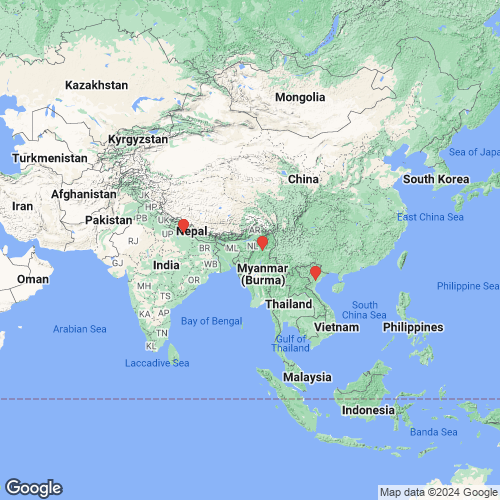The Freshwater Mussels (Unionoida) of the World (and other less consequential bivalves)
FM(U)otW(aolcb) is the web version of the MUSSEL Project Database. Follow the links to browse the data or use the custom Google search field. Either way, you win!
This page reports the specimens in the MUSSELpdb and provides a map if geocodes are known. The taxonomic history reports the record of different names and combinations that have been applied to this species (and its synonyms) since 2007.
Search the database pages:
|
|
Bivalvia | Sphaerioida | Sphaerioidea | Sphaeriidae | Sphaeriinae | Hindupisidium species Hindupisidium nevillianum (Theobald, 1876): specimens
2 nominal species as synonyms
Range: India and Indochina. West to Mediterranean? Map of Georeferenced Specimens
 |
There are no specimens in the MUSSELpdb for this species.
Genbank Vouchers
MyanmarRMBH_INEP-875 (16S) Myanmar: Kachin State, Indawgui lake
NepalUGSB_7845 (NP09/1) (COI, 16S, H3) Nepal, Rapti, River Rapti (~850 m southwest of Badha Ghumna) (27.83527°N, 82.53972°E) UGSB_7844 (NP09/2) (COI, 16S) Nepal, Rapti, River Rapti (~850 m southwest of Badha Ghumna) (27.83527°N, 82.53972°E)
VietnamUGSB_10986 (VN01/1) (16S, 28S) Vietnam, Ninh Binh (20.23361°N, 105.72194°E)
RMBH_MSph_400_1 (16S, 28S) RMBH_MSph_398_1 (16S, 28S) TUSC_Pi112 (16S, 28S) Mp_4346_3511 (16S) RMBH_MSph_400_2 (16S) INEP-877 (16S) INEP-878 (16S) Mp_4346_3510 (16S) RMBH_MSph_398_2 (16S)
|